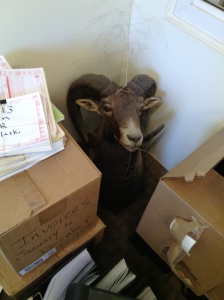I say that I didn’t know what a “Newfy” was until after I moved here to the Big City, but that’s not exactly true. A Newfy (or Newfie) is a resident, or ex-resident of Newfoundland, the easternmost Province of Canada. It’s a big rock that sits in the Atlantic Ocean. I said in a previous post that a redneck might live a bit further off the paved road than most of us. Just imagine a place that requires a boat to get to, not just the big Rock, but little fishing villages along its coast, outports, which have no roads, and must be reached by smaller boat.
It’s a delightful place. Even in the few cities, life moves at a slower, more casual pace. Because of the collapse of the fishing industry, large numbers of Newfies had to leave the Rock, to seek employment elsewhere. Many of them moved to Alberta, to work in the oil industry. It is said that, there are more Newfies in Fort McMurray, Alberta, than there are left on the island. This is almost ironic, because they have now discovered oil under the ocean bed, just off Newfoundland, and many of these experienced workers can now return home to work in their own Province again.
They have been insular in the past, because they are, literally insular. There had not been a great deal of cultural cross-pollination. The Province, and the people of it, continue to grow towards integration with the rest of Canada, and the rest of the world, because of improved communications abilities. Still, they have their own ways of doing things.
One of the men of my home-town came back from the Second World War with a wife, a woman he met and married when he was posted in Newfoundland. She was a bit eccentric, but really, not much different from some of the other characters in the comedy stage-play that was my little town, not until the strawberry jam.
We had had a beautiful spring, and early summer. It had been perfect weather for strawberries, not just my area, but the entire eastern section of Canada. Supply and demand, you could obtain as many as you wanted, at bargain-basement prices. This lady bought flats and flats of them….and then had to figure out what to do with them. “I know, I’ll make fajitas jam”, so jam she made. Now, what to do with all this jam?
She decided that she would send some of it back to her sister, still in Newfoundland, despite the fact that the strawberry crop there, was even better than it was in Ontario. Now, “normal” people (myself not included) might have called up FedEx, or maybe taken it down to the nearest Canada Post office, for shipping. Dat’s not de way we Newfs does t’ings.
She knew a Newfie guy in a town about a hundred miles away, so she called him up to ask if he was “goin’ home” that summer. He admitted that he was, so she asked him if he would take this case of jam back with him. He was happy to oblige. To get the jam to him necessitated picking a mutually empty Sunday, and driving the hundred miles, two hours, to get it to him. And then it was, sit down and chew the fat, have some rum, and maybe a few beers, and you’ll be staying for supper, and then some more gabfest and rum and beers, and another hundred-mile drive home. Nothing to it.
He eventually drove it down east, and over to The Rock on the ferry. When he got where he was going, he phoned the sister and her husband, long-distance. Like the Ontario end, they lived a hundred miles away too. Then the game started all over again, this time in reverse. Pick a day, drive the hundred miles, almost three hours, the roads in Newfoundland aren’t quite up to mainland standards. Shoot the shit, drink the rum, stay for supper, yak till the flying fish come home, and then drive three hours back. Because of the isolation, almost any excuse is accepted for socializing and a wee party.
When the ride finally came to a stop, the sister in the wilds of Newfoundland phoned the sister in the wilds of Southern Ontario to ask why she had sent this jam down….without asking, or warning. “I’ve got a pantry full of the stuff. I’m trying to give some of mine away too.”
A small vignette about Newfoundland hospitality. Another female co-worker came to Ontario with her parents when she was eight years old. She didn’t have a chance to “Go Home”, as they say, until she was 23. She’d graduated, got her first job and saved for vacation. It had been fifteen long, very formative years. The thing she missed the most, and the first thing she wanted to see again, was her beloved grandmother.
She went over and knocked on Granny’s door. Grandma greeted her with a big smile and an invitation to come in. Sit down, girl. Would you like some tea and scones, and jam? And how are you this fine day? Small talk for ten or fifteen minutes, finally Granny looked at her and said, “So, you must tell me. Who are you darlin’?” As far as she knew, she’d been entertaining a perfect stranger, and was amazed to meet her own granddaughter. You or I might find that strange but, down there, if somebody knocks on your door, there must be a good reason. They’re home, and they’re welcome.
